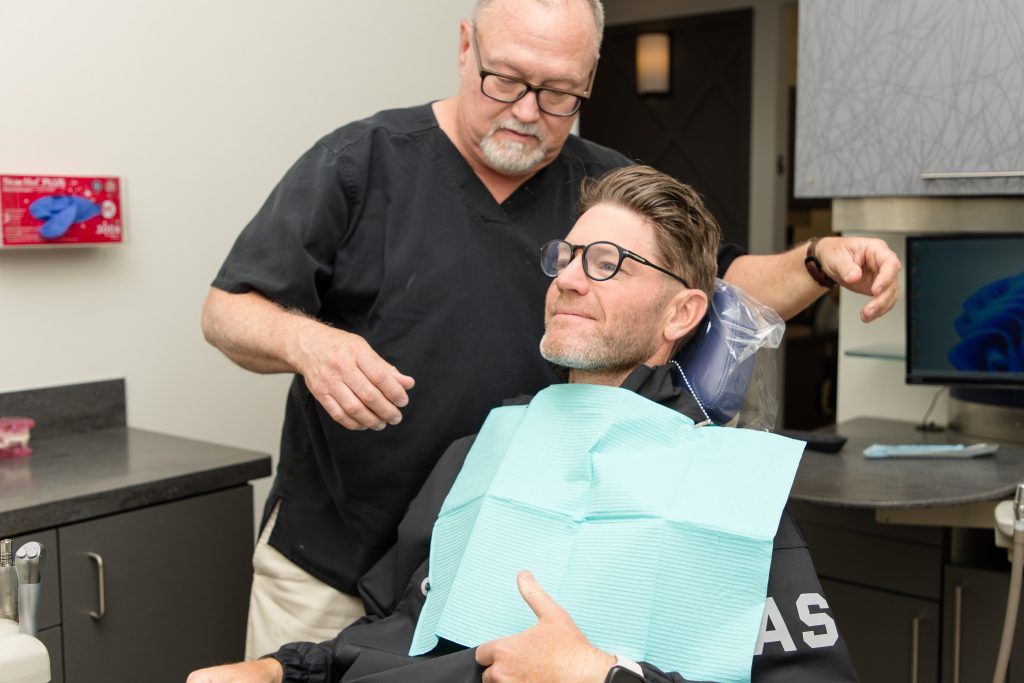
Chips, cracks, and a broken tooth can cause significant pain. Your teeth can sustain damages in many ways, with the damage being minor or significant depending on the condition of your teeth and the severity of the injury. Unless the damages are minor, you cannot fix them without visiting the dentist near you. The best you can do is address the pain and protect your tooth beside the inside of your mouth to prevent further injury.
What Can You Do If Your Chip or Break a Tooth?
Home remedies aren’t suggested by dentists to fix broken teeth. However, there are actions you can take to protect your tooth and mouth.
Actions to Take If You Chipped or Break a Tooth
The American Dental Association recommends you rinse your mouth with warm water immediately to clean it if you chip or break a tooth. You can stop any bleeding by applying pressure and placing a cold compress on the area to reduce swelling. If you can locate the piece of the broken tooth, wrap it in wet gauze, and take it with you to the dentist, visit.
What If You Have a Knocked-out Tooth?
If you have a knocked-out tooth from injuries or accidents, use gauze to pick it up, holding it by the crown, and try to place it in its socket. If the tooth is dirty, rinse it with water without scrubbing the roots or using other solutions. If you cannot put it in its socket, use a tiny milk container or saline solution to store it and get to the dentist in McDonough, GA, within 30 minutes for the best chances of having the tooth reinserted into its socket.
Relief from Chipped Tooth Pain
You can flush the inside of your mouth with warm water and apply cold compresses on your cheeks every few minutes to control the swelling. Over-the-counter pain relievers and anti-inflammatories can also help relieve the pain so long as you don’t take more than the recommended dosage. Clove oil containing eugenol, a numbing agent with anti-inflammatory properties, also helps provide relief from chipped tooth pain.
Protecting Your Mouth until You Can See Your Dentist
If you have incurred a tiny chip or have a jagged edge, you can apply dental wax over the border to prevent it from slicing your tongue or damaging the soft tissues in your mouth. However, if you aren’t aware of how to use dental wax for broken teeth, we suggest you stay away from this remedy if you have a significant chip or a section of the tooth missing because you could create more damage to the tooth when flossing. Instead, remain cautious about chewing on the other side of the damaged tooth and floss around the tooth to prevent irritation.
Injuries Needing Treatment from Dentists and Those That Can Wait
Your molars in the lower jaw are susceptible to breaking because of their pointy cusps applying intense pressure when grinding into the grooves of the molars in the top jaw. However, any teeth can sustain damages from minor to severe injuries. Extensive cracks run down to the source or from the tooth’s core to the pulp chamber, holding nerves, blood vessels, and connective tissue. You may or may not view the cracks inside the tooth or below the gum line. Some chips and cracks display no symptoms or confuse you with signs indicating cavities, sensitivity, or periodontal disease.
Generally, if you have extensive damage, you will likely need comprehensive treatment. Dentists and diagnose the severity of the injury by examining the tooth with x-rays, performing a bite test, or using magnifying glasses.
Whether minor or significant, chips or cracks are best examined by a dentist because it is challenging to determine how severe the damage is. As effective home remedies aren’t available to prevent further injury, the sharp edges of a cracked tooth can cause injuries inside your mouth, resulting in pain, infection, and expensive treatments. In some cases, untreated damage may require fearsome root canal treatment or even tooth extractions because of the condition.
Protecting Your Tooth with Temporary Repair Kits
Drugstores may encourage you to purchase dental wax for chipped tooth even when you have jagged edges on the damaged tooth. You may prefer to use the temporary repair kit if you cannot get your dentist and are fearful of visiting the emergency dentist near you. However, you must remember the kits don’t address deeper issues and merely offer a temporary solution and should never be a substitute for care from a dental professional.
Trying to determine when you must see a dentist when you have a chipped or cracked tooth is pretty challenging because some minor chips don’t require a visit to dentists. However, if you want to remain on the safer side, you must have the tooth evaluated and treated to prevent future complications.
